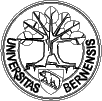 |
 |
 |
This project is a collaboration between:
 |
 |
 |
Mailing list: mobiqos@inrialpes.fr
The main drawback of the current Internet is the lack of Quality-of-Service (QoS) support. QoS support, however, is essential for business and electronic commerce applications as well as for real-time applications such as Internet Telephony (also known as IP telephony) and on-line video retrieval. During the last years the Internet community spent many efforts to develop an Internet QoS architecture based on the Integrated Services (IntServ) model and based on the Resource Reservation Setup Protocol (RSVP). However, the IETF RSVP working group stated that RSVP and the integrated services approach can not be deployed in large-scale Internet backbones due to scaling problems.
Differentiated Services (DiffServ) are a new approach for Quality-of-Service support in the Internet. Differentiated services are expected to provide a better QoS than existing services today but simultaneously keeping the implementation complexity for ISPs reasonably low ...
One goal of the collaboration is the conception and the evaluation of an appropriate mechanism to support the of combination of the Diffserv approach and mobile IP. The evaluation of our proposal will be performed using the Berkeley NS (Network Simulator) simulator.
Within this collaboration, the partners want to benefit from each other. While INRIA has much experience in the area of mobile networking (an particular in mobile IP), University of Berne and ENST are running several research projects covering several DiffServ topics, which are funded by public funding organizations and industrial companies. Therefore, the research interests are complementary with a very high degree.
A second goal of this project is to study the impact of this DiffServ model on the existing transport protocols such as the TCP protocol in a mobile environment. We will study protocols such as I-TCP or Snoop-TCP in a DiffServ network. We will propose some improvements that can be brought by the known characteristics of the wireless and mobile environment and its different layers. Our proposals will be evaluated through simulations.
Related Topics:
Related Works:
Publications: